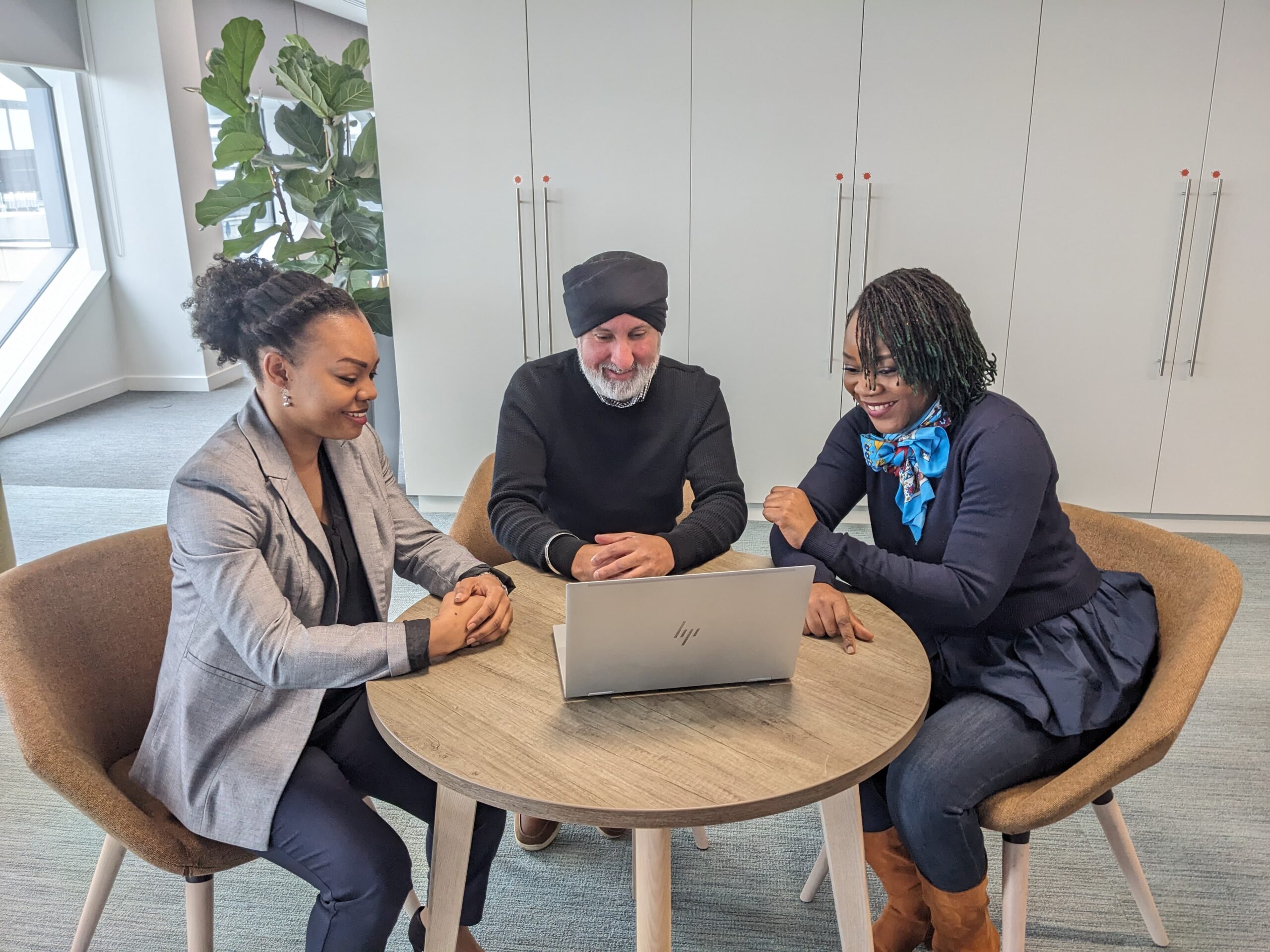“HMRC is one of the most effective fraud-fighting organisations in the world
and offers a wide range of roles for entry-level and experienced people across a range of professions, all focused on reducing tax fraud and organised crime
threats, safeguarding funding for vital public services”.
Richard Las CBE
Chief Investigation Officer and Director of Fraud Investigation Service (FIS)


Who we are
HMRC’s Fraud Investigation
Service (FIS) tackles the most serious cases of tax fraud and economic crime.
FIS consists of approximately 5,000 professionals across the UK, including Counter Fraud and Tax Professionals some of
whom have specialist skills such as forensic accountancy, cybercrime investigation and insolvency.

What we do
FIS uses a range of Civil and Criminal Powers to investigate the most harmful tax frauds and criminals, ensuring none are beyond our reach, to protect funding for UK Public Services.
Each year our teams protect
billions of pounds of funding for UK public services and enable hundreds of criminal convictions.

Our teams
Roles within FIS are varied and stimulating.
FIS also have support roles
requiring specialist skills.
Including:

Join our Fraud Investigation Service
If you would like a job with purpose, join our talent network today to keep updated on the roles we have coming up.

Our teams share their experiences
Megan – A day in the life of an Anti-Corruption Criminal Investigator.
My name is Megan, and I’m an Investigation Officer in HMRC’s Fraud Investigation Service (FIS) working specifically within the Anti-Corruption Internal Investigations team. This team is responsible for criminally investigating matters where HMRC employees, and their external counterparts, are suspected of being involved in criminal offences against HMRC functions.
I joined the team back in June 2024 having previously worked in the Police for 7 years, with the last 4 years as a Detective. I was motivated to join by the opportunity to continue doing criminal investigations, but in a different and sensitive area of law enforcement.
I feel like you can look at the job title and see ‘fraud’ and ‘internal investigations’ and you could assume it’s a dull role. I have heard references to us being the ‘expenses police’, which I can assure you is not the case. This role looks at criminal offences that can ultimately end up being prosecuted by the Crown Prosecution Service (CPS) and lead to lengthy trials at Crown Court. The consequences of these crimes can often result in prison sentences and civil financial orders.
There aren’t many differences to the work that I did as a Detective, as I’m still conducting criminal investigations, but for different offences that sit within the remit of HMRC as a law enforcement agency. What I love about working within this team is the dynamic and varied nature of the work. I’m not someone who could be satisfied in a career sitting at an office desk staring at a screen 5 days a week, 8hrs a day! Some days are spent at my desk analysing data, making applications for orders or warrants, or requesting information from third parties; or I could be halfway across the country obtaining witness statements. Other days I could be carrying out authorised investigatory activities under RIPA, or deployed on live operations to arrest a suspect, interviewing in custody, searching an address, or giving evidence in court.
Whilst the role is of a dynamic nature and includes live operational demands, in my experience thus far, this isn’t necessarily every week and sometimes isn’t even every month, but there have been occasions where for a few weeks I had one day a week in a different city on various enquiries. When I first joined and was asking about the work demands I was told ‘it comes in peaks and troughs’; I would agree with that, and I think it’s a good balance. The team covers the entire of the UK including Northern Ireland and I personally have enjoyed visiting new cities and places.
This role includes hybrid working, allowing me to work from home when I am not required in the office. The guideline is 60% of the month in the office so generally it’s 3 days in and 2 days working from home. The role also includes flexible working hours with various flexibility payment options. This does mean I am required to respond to the demands of the dynamic operational environment to fulfil the flexible payment requirements. The standard working week is 37 hrs and the working day is usually between 7am – 8pm, this can be suited to your needs, again depending on operational requirements. For example, I tend to work longer days when in the office and then I try to work shorter days whilst working from home so I can go ride my horse in the early evening. However, there are expectations to work outside these standard operating hours including weekends, evenings and bank holidays if required in exchange for the flexibility payments.
There are important skills required in this role to be a successful and competent investigator. Some of the most important I think is the need to be inquisitive, open-minded, ability to pay attention to detail and analyse information. We are digging through individuals’ bank accounts, home addresses, telecommunications data, mobile devices and more. You need to be able to pick out key material and evaluate its relevance and value. You should have good communication skills; this includes written as we need to be able to write up evidential material to be clearly understood by CPS and verbal. Verbal is key to not only getting information from witnesses or suspects, but we work as a team in Anti-Corruption and a strong case requires effective communication with all those involved. The list could go on, but I would also say you need a desire to learn, I’d say it’s impossible to know everything in the world of criminal investigations, particularly with ever changing legislation, guidance and policy, so you need to be keen to keep up with the times.
This role offers plenty of training, and there is a wide range of courses available both online and classroom based for both personal and professional development. I have received great support from my manager, the Practical Training Officer (PTO) and from the entire team. It’s so important to learn from others with different knowledge and experience.

I have been asked many a time if I am happy, I made the leap to a new job, and I think I’ve been saying yes since day one. This role brings new opportunities, learning and challenges every day. Working in the criminal investigation’s world is a job like no other, there certainly aren’t any dull days. I do meaningful, exciting and interesting work, I have a great work life balance, and I work within a supportive and fun team. If this sounds like a role that could suit you, make sure to keep your eyes peeled for any future job advertisements!
Hannah’s blog – being an Intelligence Officer
My name is Hannah, and I’m a Higher Intelligence Officer in the Fraud Investigation Service (FIS) working within the Internal Investigations team. The Internal Investigations team is responsible for investigating criminal activity undertaken by HMRC employees and their external counterparts. I was motivated to join the team by the opportunity to work in a new and sensitive area of intelligence, having previously been part of the Risk and Intelligence Service (RIS) in HMRC.
One of the most striking aspects of the job is its dynamic nature. As an Intelligence Officer, my responsibilities shift regularly depending on the operational needs of the team and strategic priorities. Some days are spent at my desk, analysing data and connecting the dots within criminal networks. Other days I am deployed away from the office, carrying out authorised investigatory activities under RIPA whilst supporting live criminal operations, or assisting on training exercises. The role includes hybrid working, allowing me to work from home when I am not required in the office or deployed. The expectation is 60% of my working time in the office.
The Intelligence Officer role also includes flexible working hours, with a flexibility payment in recognition of the ever-changing nature of the work. In this position I am required to respond to the pace and demands of the operational environment, which can mean adjusting my schedule and reprioritising work to support the bigger picture. The standard working week is 37 hours with the working day usually between 7am and 8pm. For the flexibility payment, I am expected to be on call one week in four, a minimum of 75 changes per year to my shift pattern and carry out an additional 275 working hours in the year.

On a typical day I may find myself juggling several tasks such as processing and disseminating intelligence, interpreting large volumes of data, developing operational plans, and attending case conferences and meetings. Another key aspect of the job also involves engaging and collaborating with other internal HMRC teams and external Law Enforcement Agencies. Building and improving these working relationships is an important part of the Intelligence Officer role. As such, teamwork is an essential skill in this environment. You’ll work closely with your colleagues, share insights, and support each other in high pressure situations.
Further skills I think are important in this role include effective time management and decision making, especially when priorities can shift at short notice. Strong communication skills, written and verbal, are essential too, as part of the job includes sharing information clearly and effectively within various legal frameworks. Most of all, however, I think the most crucial trait is a genuine desire to learn as the role is constantly evolving.
You’ll receive support from your manager and a dedicated Practical Training Officer who ensures you’re equipped with the knowledge and confidence to grow in the position.
There is also a wide range of courses available after initial training to help you build on your skills and continue to develop personally and professionally. For me, the most exciting aspect of being an Intelligence Officer is the unpredictability – every day brings new challenges and opportunities. It’s a role that requires you to think critically and make decisions that have real impact. If you are looking for a career that’s both meaningful and dynamic, this could be the perfect fit.
Start your HMRC journey today by looking at the vacancies we have available.
Discover more about what we do, our business areas and life at HMRC.
Ask our employees questions for an insight into what it’s like to work at HMRC.

